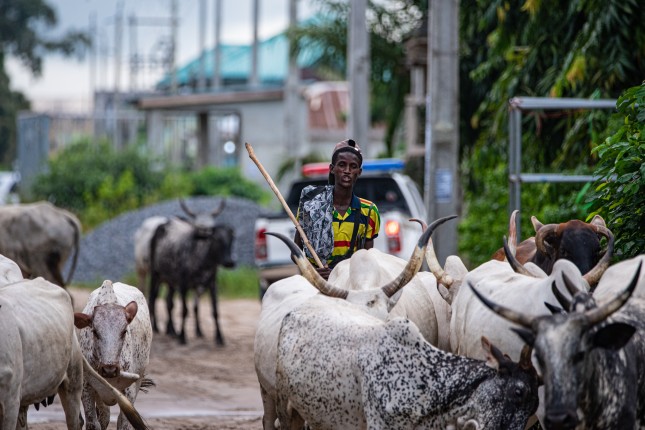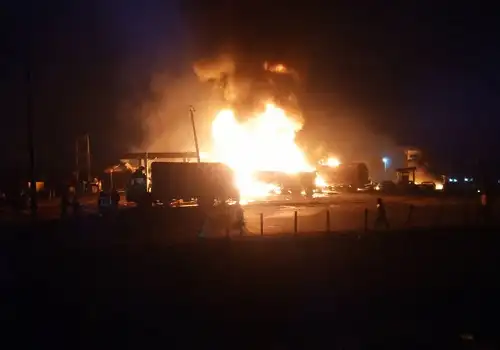On Saturday, April 26, 2025, James Melvin Ejeh, Chairman of Agatu Local Government Area (LGA) in Benue State, issued a 48-hour ultimatum for Fulani herdsmen to vacate farmlands to ensure uninterrupted farming during the planting season. The directive, announced during a stakeholders’ meeting at the council secretariat in Obagaji, addressed escalating tensions between herders and farmers in Agatu, a predominantly agrarian Idoma community where agriculture drives the local economy. Following a request from the Fulani community, Ejeh extended a one-week grace period, setting a new deadline of May 3, 2025, for the herders’ relocation.
The meeting convened traditional rulers, Fulani leaders like Ardo Boderi, youth representatives, and security officials from the Nigeria Police Force and Department of State Services (DSS). Obochi Solomon, Ejeh’s Chief Press Secretary, quoted the chairman as saying, “Our farmers must cultivate without disruption. We will do everything necessary to create a safe environment for them,” emphasizing agriculture’s critical role and the need for farmers to access lands without fear. Ejeh acknowledged the relative peace in Agatu, bolstered by prior peace initiatives, but stressed that uninterrupted farming was a priority to prevent food insecurity, a concern echoed by Benue’s Commissioner for Agriculture, Professor Moses Ogbaji, who noted banditry’s impact on farming.
The Ado of the Fulani, Ardo Boderi, requested a one-week extension to organize the herders’ relocation, which Ejeh approved, reflecting a commitment to dialogue. General Youth Chairman Oloche Silas pledged Agatu youths’ support for a peaceful evacuation, vowing to avoid violence, while Chief John Agidani, representing the Och’Agatu, praised Ejeh’s leadership and urged compliance. Security officials commended the peaceful approach, with the DSS and police pledging support to ensure a smooth process, as reported by Daily Post and The Nation.
Ejeh’s ultimatum follows a history of herder-farmer conflicts in Agatu, where attacks between 2013 and 2017 killed thousands, including over 100 in Egba in 2015, per Vanguard. Recent incidents, such as the April 2025 killing of a herder and rustling of 210 cows, condemned by the Agatu Youth Development Initiative (AYDI), underscore ongoing tensions. Ejeh’s peace efforts, including a January 2025 dialogue with Miyetti Allah Cattle Breeders Association of Nigeria (MACBAN) and a 14-member peace committee, had fostered relative calm until these setbacks. His October 2024 vow to pursue perpetrators of attacks via Operation Whirl Stroke and police clearance operations reflects a zero-tolerance stance on violence.
The decision drew mixed reactions on X, with @Naija_PR and @NigeriaStories amplifying the news, while @SenNenadParody supported the ultimatum, urging other states to follow and suggesting herders buy land for grazing. However, the extension to May 3, as noted by New Telegraph, aims to balance agricultural needs with peaceful coexistence, aligning with Ejeh’s broader peace missions, such as his November 2024 dialogue with Kogi communities to resolve boundary disputes. Critics, like AYDI, warn that failure to enforce the relocation could reverse peace gains, risking a return to the cycles of violence that once displaced Agatu communities.
Ejeh’s leadership, backed by Governor Hyacinth Alia’s peace initiatives, navigates a delicate balance in a region scarred by insecurity, with 56 deaths in Ukum and Logo LGAs in 2025 alone. The extended deadline and security commitments aim to protect Agatu’s 80,000 farmers while fostering dialogue, but the success of this evacuation will hinge on compliance and enforcement amidst Nigeria’s broader herder-farmer crisis.












I dont understand why the chairman is giving ultimatums instead of finding long-term solutions. Is this really going to solve the issue?
Do you think the ultimatum will actually solve the conflict or just escalate tensions further? Curious to hear your thoughts!
Do you think the ultimatum will actually solve the conflict or just escalate tensions further? Curious to hear your thoughts!
I think the ultimatum is necessary for protecting the community, but I hope it leads to peaceful resolution.